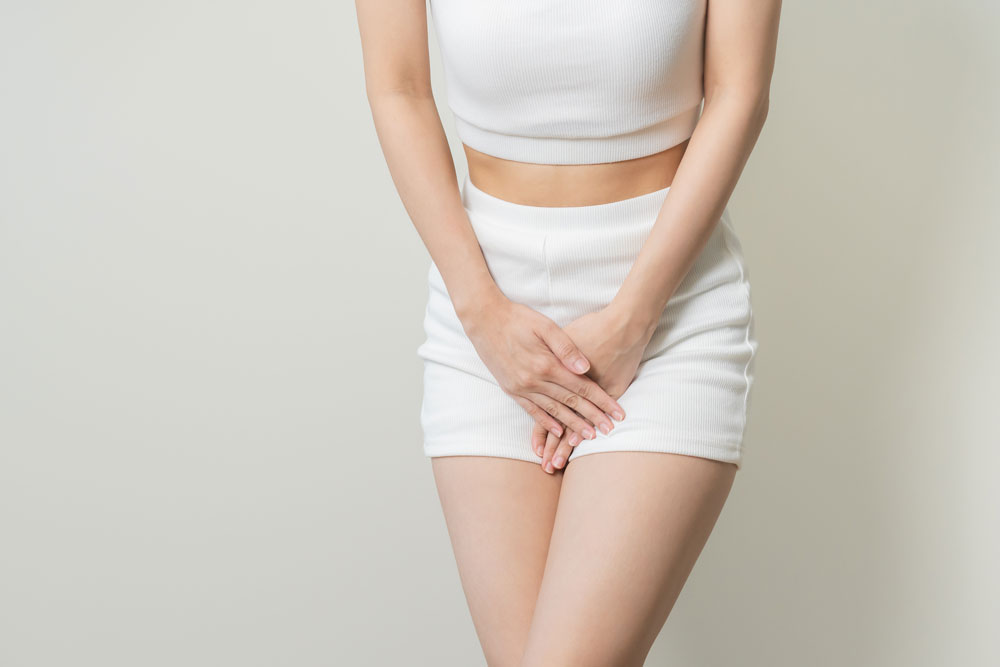Menopause brings several challenging bodily changes to women, including concerns women don’t like to talk about openly, such as painful intercourse, vaginal dryness, and urinary incontinence. If you have any of these concerns then you should know that you aren’t alone. In fact, many women experience these symptoms during menopause. Fortunately, there are treatments such as the Mona Lisa procedure at Invogue Rejuvenation & Body Sculpting Center in El Paso, TX that can help you alleviate some of these concerns.
Mona Lisa is a unique laser treatment that is designed to tighten soft tissues, such as vaginal tissues that loosen with the natural aging process. The theory behind this treatment is that by tightening vaginal tissues, some of the symptoms related to menopause can improve. Additionally, the stimulation from the internal laser treatment can also increase blood circulation and strengthen the muscles that control incontinence. But how long do the results of this treatment last?
How Long Do Mona Lisa Results Last?
Most women can expect the results of this treatment to last for at least a year at a time. This treatment is usually considered a semi-permanent solution for age-related concerns. However, because the natural aging process and menopause may cause these concerns to return, it’s usually necessary for women to have annual appointments once a year to maintain their results.
Although annual treatment appointments will be necessary, it’s important to realize that the Mona Lisa procedure will produce results that are much longer-lasting than other methods of treatment, including hormone medications or topical creams.
Other Frequently Asked Questions About Mona Lisa Procedure
1. How Many Treatments Will You Need?
Like many other energy-based treatments, you will generally need at least three to six treatments to achieve your desired results with the Mona Lisa procedure. Most women will only need three treatments because the CO2 laser is incredibly powerful, yet gentle enough to be used on the most vulnerable tissue. However, you may need additional treatments if your concerns are particularly severe, such as for the treatment of urinary incontinence.
2. How Fast Are Results?
If you are dealing with symptoms such as vaginal dryness, painful intercourse, and urinary incontinence, it can be important to get your results as quickly as possible to alleviate your discomfort. Women are eager to return to a sense of normalcy when they use this treatment, so it’s a good thing that the results of this procedure can be seen as soon as the very first appointment.
The results of this treatment will gradually improve with additional treatments, which are spaced about one month apart. By the time you finish your last treatment session, you should be completely free of your feminine health concerns. This can include having stronger vaginal tissue, more natural lubrication, and more control over urinary incontinence.
3. Will You Still Need Lubricants?
Maybe. There’s no shame in using lubricant during intercourse, but whether or not you will still need lubrication will be determined by how well you respond to the treatment. Every patient has a different body that responds to the CO2 laser differently, but for the most part, you may not need artificial lubrication during intercourse to be comfortable. That said, some women still prefer to use lubricants as a matter of preference.
4. What Causes Vaginal Dryness?
Like many other perplexing changes in the body, vaginal dryness is generally caused by changes in a woman’s estrogen levels during menopause. Changes in the estrogen levels of the body can cause the vaginal walls to come thinner, which can then lessen the amount of natural lubrication in the body.
While these estrogen changes are a natural process, the symptoms can be difficult to cope with. Some of the symptoms of vaginal dryness can include burning, itching, and pain during intercourse. These symptoms can cause women to have a lower libido or lose interest in sex. Vaginal dryness can also be associated with an increase in urinary tract infections and urinary incontinence.
5. What Is Treatment Like?
Given that this is a feminine health treatment, your treatment process will actually resemble an appointment with your annual OBGYN check-up. The Mona Lisa procedure uses a specially-designed system that inserts a CO2 device into the vagina, where it is then used to emit laser energy for several minutes to stimulate blood flow, collagen production, and other benefits. For this treatment, you will lay on your back as you would during an annual exam in a private room until your treatment is complete.
6. What Is Recovery Like?
The recovery process for this treatment is usually simple. After your treatment, you will not be allowed to engage in sexual intercourse for at least 24 to 48 hours. You should not experience any significant discomfort, although some patients prefer to take time off of work during the immediate recovery period. Overall, you should be able to go back to work on the same day as your treatment and engage in most of your normal activities unless otherwise directed by your healthcare provider.
During your recovery, it’s important to keep your body hydrated to assist in your recovery. You should aim to drink at least 48 to 64 oz of water a day to maintain adequate hydration in your body. You should also avoid using scented soaps on the vagina as well as douching products until you have reached the end of your recovery.
7. How Can You Prepare for Treatment?
You should prepare for this treatment as you would for any other women’s health check-up, which means arriving at your appointment freshly cleaned and trimmed, if that is your preference. You should not use douching products at least one week before your appointment to minimize potential irritation. Other than these instructions, you should not need to make any special considerations for your appointment.
8. Is This Treatment Right for You?
This treatment is usually a good option if you experience any symptoms of vaginal dryness, painful intercourse, or persistent urinary incontinence. Burning and itching are not normal conditions, so you should not accept the symptoms if you’re experiencing them. You may want to bring up the possibility of the vaginal rejuvenation treatment at your annual gynecological appointment or at a special appointment to discuss the possibility of this treatment.
Most women who are experiencing symptoms of vaginal dryness are generally good candidates for this treatment. However, the most common candidates for the Mona Lisa procedure are women who have been menopausal for at least one to three years and women who have mild to moderate symptoms of vaginal dryness, painful intercourse, and urinary incontinence.
9. Can Younger Women Use This Treatment?
Because younger women do not typically experience symptoms of vaginal dryness, they do not usually pursue this type of vaginal rejuvenation. However, there are some circumstances in which younger women may want to use this treatment to improve symptoms of vaginal dryness or painful intercourse.
Women who have recently given birth, for example, may have these symptoms due to fluctuating estrogen levels. Certain physical and psychological conditions can make intercourse painful due to lack of natural lubrication, so if you and your physician decide that this treatment is a good option for you, you still may be able to use this treatment even if you are not menopausal.
10. What About Other Treatments?
There may be other treatments for menopause-related concerns that you may have tried in the past, such as using vulva oils or creams to alleviate vaginal dryness. The problem with topical ointments is the higher risk of allergic reaction to essential oils and fragrances in the products that can irritate vaginal tissues rather than resolve vaginal dryness. If you have tried topical treatments in the past without much success, then it’s unlikely that different topical treatments will be effective for you.
Some women also try hormone therapy to alleviate the symptoms of vaginal dryness and low sexual drive, but this may not be an appropriate treatment for all women. Please speak with your healthcare provider about all of your treatment options during your consultation.
Try Vaginal Rejuvenation Today
Menopausal women who are experiencing persistent symptoms of vaginal dryness and painful intercourse should not accept these symptoms as being normal. There are treatment options that can help you return to a sense of normalcy without the use of hormones. Contact Invogue Rejuvenation & Body Sculpting Center in El Paso, TX today to schedule your consultation.



